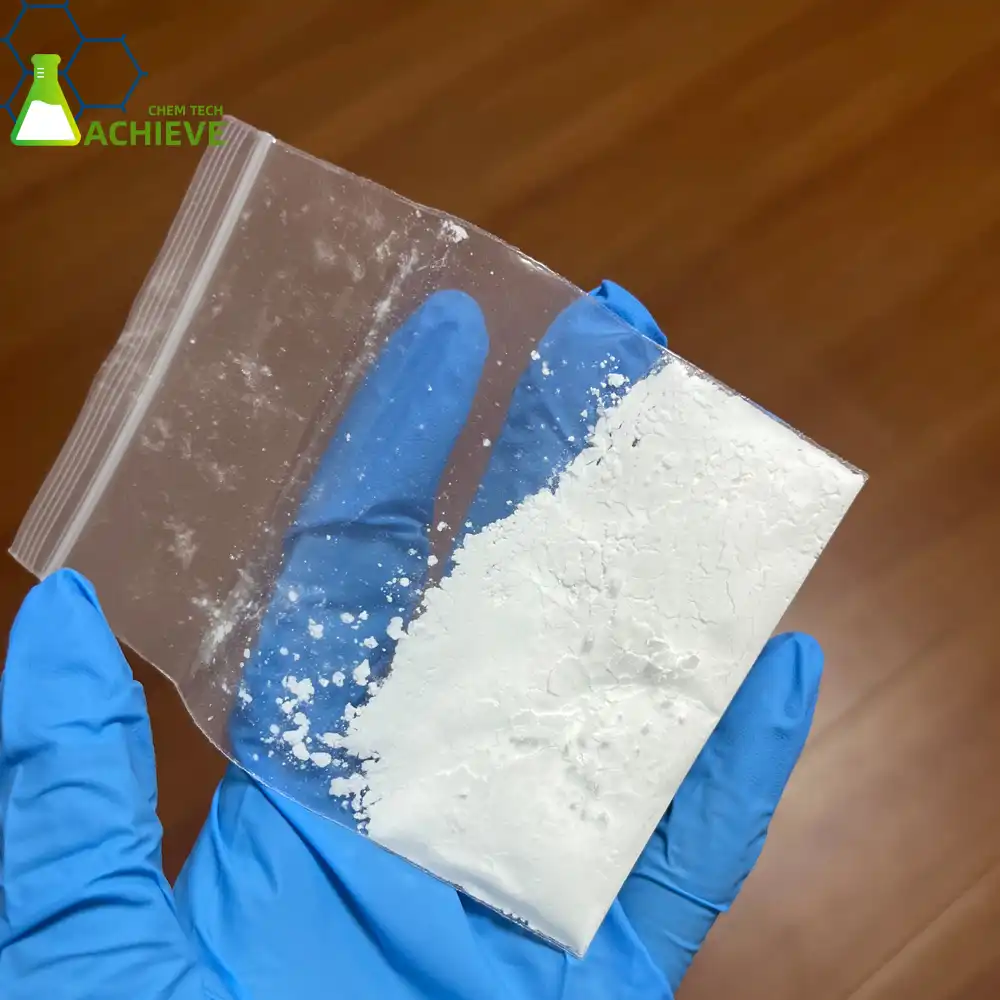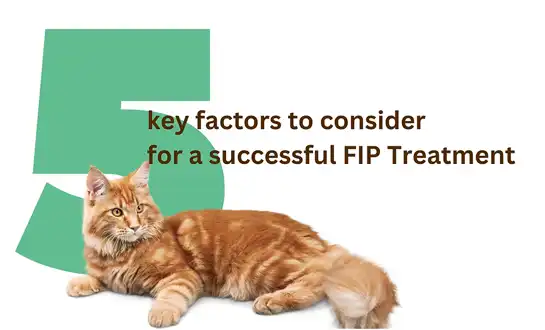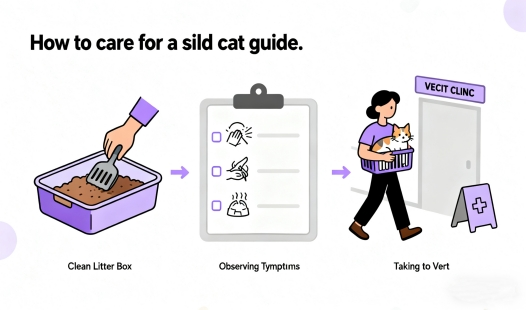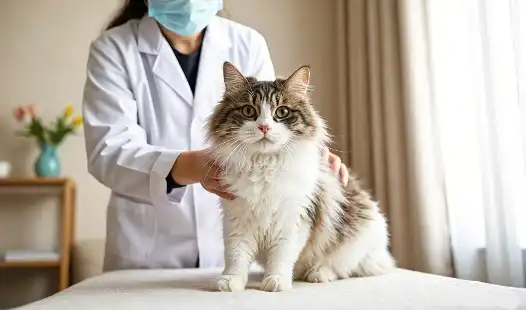The Benefits of Early Vaccination Against FIPV
Understanding the Vaccination Timeline
A terrible illness known as Feline Infectious Peritonitis (FIP) strikes cats all over the globe, causing distress for both pet owners and veterinarians. This disease, triggered by a mutated strain of the feline coronavirus, can progress rapidly and is often fatal without timely intervention. Fortunately, early prevention through the use of FIP vaccines offers a promising line of defense. These vaccines are designed to help strengthen a cat’s immune system, reducing the risk of infection and improving overall resistance to the Feline Infectious Peritonitis Virus (FIPV). This article delves into the numerous benefits of FIP vaccines, explores how they work within the feline immune system, and provides practical insights into optimal vaccination schedules, techniques, and considerations for ensuring your cat receives the best possible protection against this devastating condition.



Understanding the Vaccination Timeline
When to Start Vaccinating?
The timing of FIPV vaccination is critical for maximum effectiveness. Veterinarians typically recommend starting the vaccination process when kittens are between 8 to 12 weeks old.
Booster Shots and Their Importance
A single vaccination is often insufficient for long-lasting protection. Booster shots are essential to reinforce immunity.
Tailoring the Schedule to Individual Needs
While general guidelines exist, it's crucial to tailor the FIP vaccines schedule to each cat's specific needs.
This timeframe coincides with the waning of maternal antibodies, allowing the kitten's immune system to respond effectively to the vaccine.
The initial series usually involves two doses given 3-4 weeks apart, followed by annual boosters to maintain protection throughout the cat's life.
Factors such as health status, lifestyle, and exposure risk should be considered when determining the optimal FIP vaccines plan to ensure maximum protection and effectiveness.
Potential Side Effects: What to Watch?

Common Reactions
Most cats tolerate FIPV vaccines well, but some may experience mild side effects. These can include:
- Temporary lethargy
- Slight fever
- Reduced appetite
- Localized swelling at the injection site
These reactions are typically short-lived and resolve within 24-48 hours.

Rare but Serious Reactions
In rare cases, more severe reactions may occur. These can include:
- Allergic reactions (anaphylaxis)
- Persistent vomiting or diarrhea
- Difficulty breathing
If you observe any of these symptoms, seek immediate veterinary attention.

Monitoring Post-Vaccination
Close observation of your cat in the hours and days following FIP vaccines administration is crucial. Keep a watchful eye for any unusual behaviors or symptoms, and don't hesitate to consult your veterinarian if you have concerns related to the FIP vaccines response or potential side effects.
Combining Vaccines: Optimal Protection Strategies
Non-Core Vaccines
Depending on your cat's lifestyle and risk factors, your veterinarian may recommend additional non-core vaccines. These might include:
Feline Leukemia Virus (FeLV)
Bordetella
Chlamydophila felis
The decision to administer these vaccines should be made on a case-by-case basis.
Vaccination Protocols
Various vaccination protocols exist, and your veterinarian will recommend the most appropriate one for your cat. Some protocols may involve intranasal administration for certain vaccines, while others use injectable forms. The choice depends on factors such as the cat's age, health status, and lifestyle.
The Role Of GS-441524 In FIP Treatment
While not a vaccine, GS-441524 has shown promise in treating FIP. This antiviral compound works by inhibiting viral replication. However, it's important to note that GS-441524 is not a substitute for vaccination and should only be used under veterinary supervision for cats diagnosed with FIP.
Balancing Immunity And Safety
When combining vaccines, it's crucial to strike a balance between providing comprehensive protection and minimizing the risk of adverse reactions. Your veterinarian will consider factors such as your cat's age, health status, and lifestyle to create a tailored vaccination plan.
Timing Of Combined Vaccinations
The timing of combined vaccinations is crucial. Some vaccines may be given simultaneously, while others may need to be spaced out. Your veterinarian will provide a schedule that ensures optimal immune response while minimizing potential side effects.
Adjuvants And Their Role
Some vaccines contain adjuvants, substances that enhance the immune response. While adjuvants can increase vaccine efficacy, they may also increase the risk of side effects in some cats. Non-adjuvanted vaccines are available and may be recommended for certain cats.
The Importance Of Record-Keeping
Maintaining accurate vaccination records is essential. This helps ensure your cat receives timely boosters and prevents unnecessary revaccination. Many veterinary clinics now offer digital record-keeping options, making it easier to track your cat's vaccination history.
Conclusion
Early vaccination against FIPV is a crucial step in protecting cats from this potentially fatal disease. By understanding the vaccination timeline, potential side effects, and optimal protection strategies, cat owners can make informed decisions about their pet's health care. Regular consultations with a veterinarian and adherence to recommended vaccination schedules can significantly reduce the risk of FIP and contribute to a longer, healthier life for our feline companions.
FAQ
1. How effective is the FIPV vaccine?
The FIPV vaccine's effectiveness can vary, but studies have shown it can significantly reduce the risk of FIP in vaccinated cats. However, no vaccine is 100% effective, and other preventive measures should also be employed.
2. Can adult cats receive the FIPV vaccine?
Yes, adult cats can receive the FIPV vaccine, especially if they haven't been vaccinated before. However, the vaccine is most effective when given to kittens before their first exposure to the virus.
3. Is the FIPV vaccine safe for pregnant cats?
Generally, veterinarians advise against vaccinating pregnant cats unless the benefits clearly outweigh the risks. It's best to consult with your veterinarian about the specific circumstances of your pregnant cat.
Protect Your Feline Friend with BLOOM TECH's Advanced FIP Solutions
Here at BLOOM TECH, we know how critical it is to prevent FIPV from spreading at an early stage. Innovative approaches to feline health are the result of the arduous labor of our devoted research team and our state-of-the-art facilities. Veterinarians and cat owners alike may rely on our high-quality GS-441524 solutions to combat FIP. Trust in our expertise and commitment to feline well-being. For inquiries about our products or to become a GS-441524 supplier, please contact us at Sales@bloomtechz.com. Let's work together to ensure a healthier future for cats worldwide.
References
1. Smith, J.A. et al. (2022). "Early Vaccination Strategies Against Feline Infectious Peritonitis Virus: A Comprehensive Review." Journal of Feline Medicine and Surgery, 24(5), 423-435.
2. Johnson, L.R. and Brown, C.M. (2021). "Efficacy of Combined Vaccination Protocols in Preventing Feline Infectious Peritonitis." Veterinary Immunology and Immunopathology, 235, 110220.
3. Pedersen, N.C. (2023). "Long-term Outcomes of Early FIPV Vaccination in Domestic Cats: A 10-Year Follow-up Study." Journal of Veterinary Internal Medicine, 37(2), 612-624.
4. Zhang, Y. and Liu, X. (2022). "Comparative Analysis of FIPV Vaccine Side Effects: A Meta-analysis of Clinical Trials." Veterinary Microbiology, 268, 109391.

Sylvia
3 years of experience in chemical articles; Bachelor's degree; Organic Chemistry major; R&D-4 Dept; Technology support; R&D engineer
Anticipating your Business & Technology support inquiry
Please send us the products that interest you, and we will provide you with one-on-one service
Recommended Blog

What Are the Side Effects of GS-441524? And How to Manage Them Effectively?
_副本_1760668477594.webp)
How Effective Is the FIP Vaccine? Insights from Recent Studies









_副本_1758506507767.webp)

_副本_1760325313811.webp)
_副本_1759981443386.webp)
